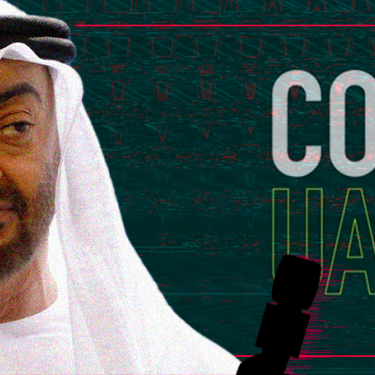Oppressive climate awaits reporters covering COP28 in UAE

The many reporters in the United Arab Emirates covering the 28th United Nations Climate Change Conference (COP28) in Dubai face huge restrictions in a country where the least criticism of the government can result in imprisonment. Reporters Without Borders (RSF) calls on the Emirati authorities to guarantee journalists’ right to report with complete freedom.
The UAE’s Media Regulatory Office (MRO) has, with public apologies, just withdrawn the “media content standards” that it had posted on the UN climate agency website at the end of October, ahead of the COP28, which started on 30 November in Dubai. However, despite that diplomatic stance, many other similar laws, regulations and procedures that restrcit journalists remain in force.
● Red lines for journalists
A 1980 federal law prohibits any media content that is said to “criticise the president,” “damage the higher interests of the State,” “violate public morals” or publish “any material which includes disgrace against the president of an Arab or Islamic country or any other friendly country.” The list of prohibitions is long and laws threatening journalists with censorship are interpreted in a sufficiently vague manner as to establish a climate of self-censorship.
● Surveillance state
The United Arab Emirates is one of the biggest users of spyware with the aim of tracking and harassing those who criticise the government. The UAE’s 2012 cybersecurity law, which was amended in 2021, extends the government’s ability to censor journalistic content.
● Restrictive accreditation
Journalists who obtain COP28 accreditation are banned from taking photos or filming outside official conference areas without permission from the National Media Office in consultation with the MRO. They are asked to provide detailed personal information and information about their reporting without any guarantee of obtaining the requested accreditation and without being given grounds.
The laws and regulations that the United Arab Emirates imposes on journalists are extremely restrictive. The journalists, both Emirati and international, who cover COP28 will do so in a climate of repression, surveillance and self-censorship. We call on the UAE to review its policies that throttle media freedom, to release its imprisoned journalists, and to lift restrictions on media professionals during COP28
Both journalists in the UAE and those abroad have paid dearly for these oppressive policies. Ahmed Mansoor, a well-known blogger, was sentenced to ten years in prison in 2018 after being accused of posting “false reports” and insulting the “status and prestige of the UAE” on social media.
According to an investigation by the Reuters news agency in 2019, many journalists have been subjected to cyber-surveillance and hacking because they were carrying out investigative reporting on the UAE. They included Rori Donaghy, a former contributor to the UK’s Guardian newspaper.
On the basis of documents provided by Forbidden Stories and Amnesty International, the Guardian reported in 2021 that at least 12 journalists based in the UAE, including Financial Times editor Roula Khalaf, were on a list of potential targets for surveillance by the Israeli spyware company NSO, whose clients then included the Emirati government. The UAE subsequently turned to a more discrete Israeli company called QuaDream and its spyware “Reign” to spy on some of its journalists, according to an investigation by the Toronto-based Citizen Lab in April 2023.
The UAE’s readiness to use so many repressive methods to push media personnel to censor themselves fuelled concern about a wave of press freedom violations during COP28.
